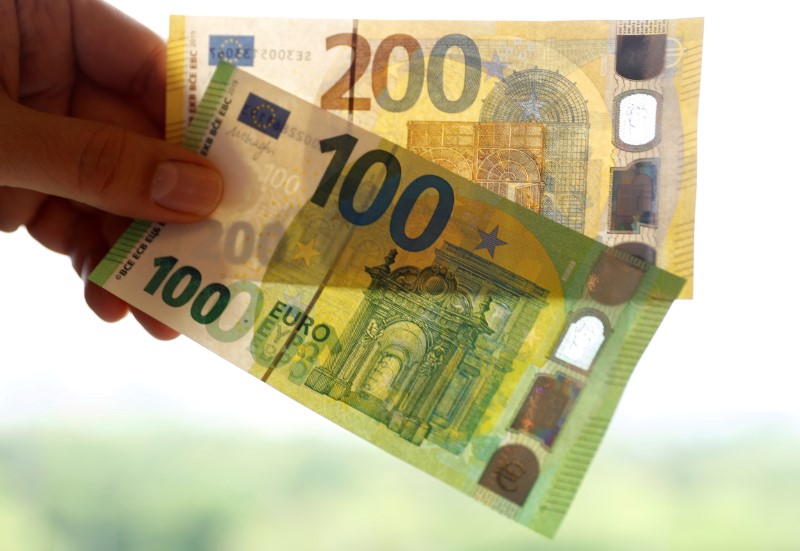By Dhara Ranasinghe and Yoruk Bahceli
LONDON (Reuters) - The euro jumped to a three-month high and Italy's borrowing costs tumbled on Thursday after the European Central Bank revved up stimulus to shore up an economy ravaged by the coronavirus pandemic.
The ECB said it would increase the size of emergency bond purchases by 600 billion euros ($674 billion) to 1.35 trillion euros, more than the 500 billion-euro increase many analysts expected.
The central bank added that purchases would run until the end of June 2021, six month longer than originally planned, and that it would reinvest bonds maturing in its pandemic emergency purchase scheme at least until the end of 2022.
"It did as expected and this is naturally an additional relief for the sovereign spreads of these (weaker euro zone)countries and for the euro," said Didier Saint-Georges, managing director at Carmignac.
The euro rallied to three-month highs just above $1.13 (EUR=EBS) and was last up 0.75% on the day. It has gained for eight consecutive sessions.
ECB policymakers debated expanding their emergency bond purchases by between 500 billion euros ($566 billion) and 750 billion euros on Thursday before settling for a compromise figure, three sources told Reuters.
(Graphic: Euro zone markets react to ECB, https://fingfx.thomsonreuters.com/gfx/mkt/gjnvwybwevw/ECBJUNETHIS%20ONE.PNG)
Italy led a rally in southern European bond markets, with 10-year yields tumbling more than 15 basis points to 1.38% (IT10YT=RR) - their lowest since late March. They notched up their biggest one-day fall since May 18.
The gap between 10-year Italian and German bond yields was at its tightest since late March at around 170 bps (DE10IT10=RR).
Spanish and Portuguese 10-year bond yields fell about 7 bps each (ES10YT=RR) (PT10YT=RR). Greek bond yields tumbled more than 10 bps to their lowest levels since early March (GR10YT=RR).
European stock markets see-sawed, with a broad measure of European stocks down 0.75% (STOXX).
"Monday, Tuesday and Wednesday were a great run with the expectation of additional easing. We got that and now it seems that traders are taking the money off the table for now," said CMC Markets analyst David Madden.
Banking stocks rallied, however, with an index of euro zone banking stocks gaining more than 1% (SX7E).
(Graphic: Euro zone markets react to ECB, https://fingfx.thomsonreuters.com/gfx/mkt/gjnvwybwevw/ECBJUNETHIS%20ONE.PNG)
In a further sign that more stimulus was shoring up investor sentiment, safe-haven German bond yields rose and a key long-term gauge of the market's inflation expectations hit a three-month high above 1.07%
The yield on Germany's 20-year bond turned positive for the first time since late January, briefly rising to 0.017% (DE20YT=RR).
"What's different from the GFC (global financial crisis) is it's clear that central banks are willing to go faster in terms of stimulus, willing to go bigger and for longer. The ECB today is part of that," said Jack McIntyre, fixed income portfolio manager at Brandywine Global.

"The fact they are talking about keeping stimulus in place until June next year is pretty good. And it isn't only about monetary policy. It is about fiscal stimulus, too. So you are getting a big one-two punch."